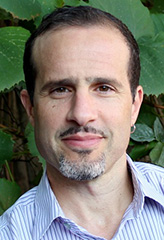
About

Over the last couple years, we have hired Jeremy for a visioning and planning process, and on an ad campaign design process – both resident led. Jeremy has a wealth of tools and techniques to help residents and staff articulate their goals and objectives, but even more, Jeremy’s character is one that so clearly honors the voices of the residents – the ones who will be most greatly impacted by our work and decisions – so that they, in turn, trust the process and take ownership of it. The quality and integrity of our work has risen because of our partnership with Jeremy.
Tania M. Mireles, Director, Violence Intervention & Prevention Initiative, BPHC
Jeremy Phillips, M. Ed., has been a facilitator and trainer for mission-driven organizations locally, nationally, and internationally for over twenty years. He became an independent consultant in 2004 in order to most effectively engage with and support real impact for his mission-driven clients. Since then he’s guided dozens of organizations and coalitions through complex change processes that have led to innovative, tangible results. Jeremy was a senior instructor in the Master of Education Department at Cambridge College for ten years. He currently sits on the Global Advisory Board of the Open Society Foundations’ Youth Initiative, and the Board of Directors for Voces de Cambio.
From Jeremy: I am grateful to be able to support the meaningful change efforts of so many diverse clients. While my consulting practice has continued to evolve and grow, and my own skills and expertise have deepened over the years, my commitment to supporting my clients’ important work — helping them advance their missions as effectively as possible — remains steadfast.
Recent and Current Clients
- Open Society Foundations’ Youth Initiative
- Plan International, USA
- Boston Public Health Commission, Division of Violence Prevention
- IDEA-UK: International Debate Education Association
- Franklin Park Coalition
- Community Art Center
- Zumix
- Bikes Not Bombs
- Normandin Middle School, New Bedford Public Schools
- New England Ocean Science Education Collaborative – Families by the Seaside
- The Neighborhood School
- Farrington Nature Linc
- NERACOOS
- Mount Pleasant Home
Jeremy’s Values and Approach
Partnership and results: The client and I are partners in the success of the process. My role is to create situations that allow the knowledge and instincts of the people involved to shine through. I help my clients discover the right amount of “stretch” for them, so they can stay clear about where they’re headed, yet be open to breakthrough possibilities.
Appreciative and constructive: I start by seeking to understand and appreciate what’s already happening in an organization. Instead of focusing on problems and deficits, I look for the strengths and opportunities. While important issues can’t be ignored or glossed over, we focus on what we can build.
Inclusiveness and ownership: When organizations seek to make big changes, they should strive to include as many of the people who’ll be affected by the changes as practicable. This enables them to get the best thinking from as many stakeholders as possible. In addition, people who’ve been involved in the process are more likely to want to see it successfully implemented.
Stakeholders hold the answers: The people who have a stake in the situation are likely to have the most expertise and the best answers. My primary role is to help the stakeholders contribute their finest ideas. I’m not the “expert” who’s there to tell the organization where it should go or what it should do, but I do add my insights whenever it’s appropriate.
Dynamic and engaging sessions: When I facilitate a session, I strive to make it as dynamic, participatory, and engaging as possible, because that helps bring out the participants’ best thinking.
Structured and responsive: If an organization is seeking to make a big change, it should follow a well-structured process, yet be responsive to whatever’s happening on the ground. I try to model that as a consultant.